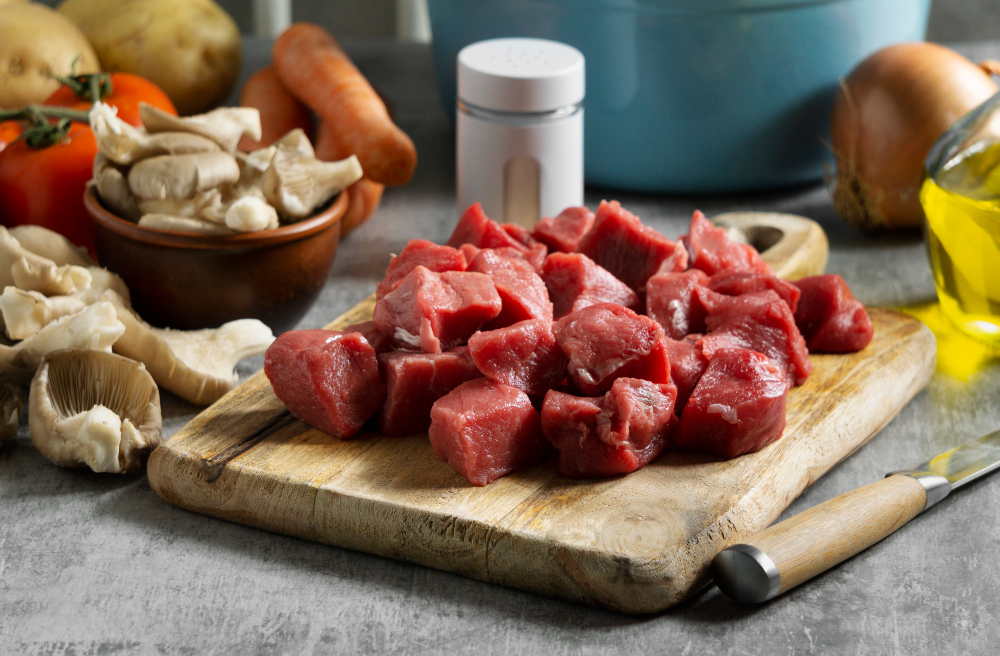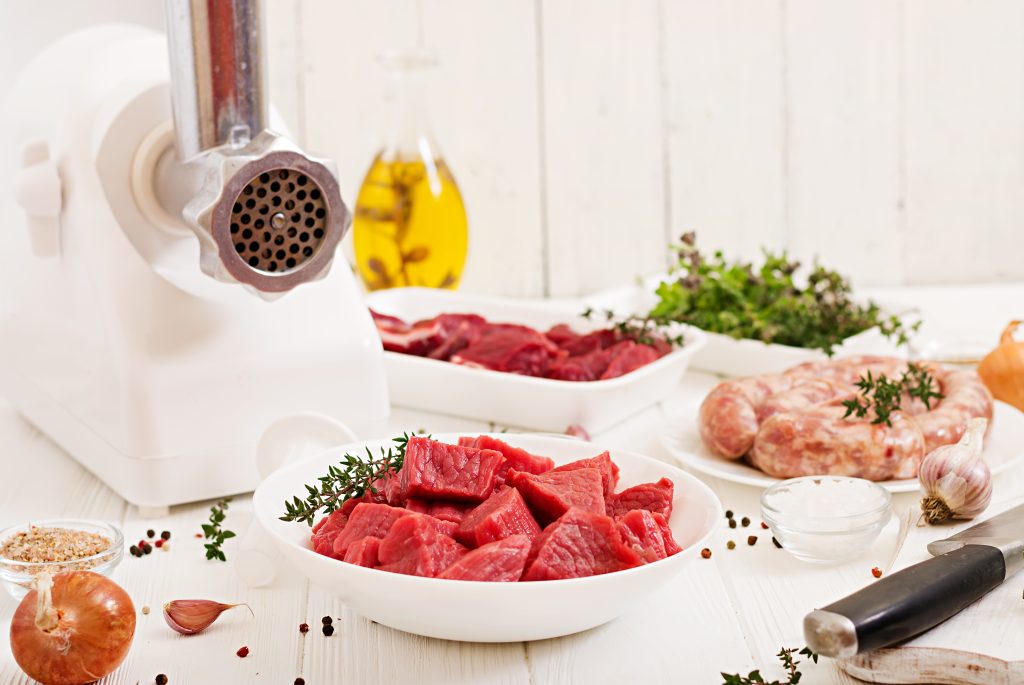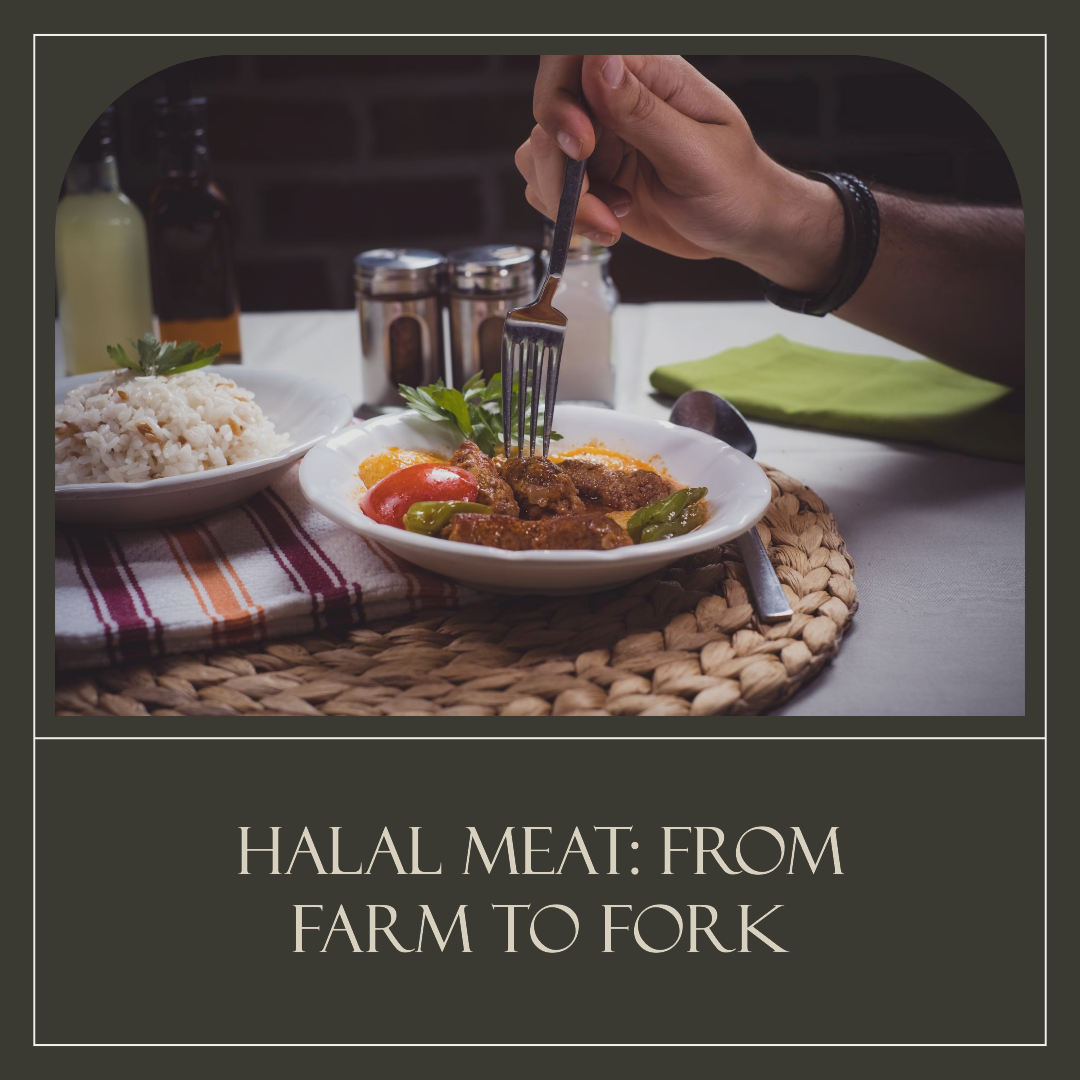Halal meat, which adheres to Islamic dietary laws, represents more than just a set of rules—it embodies ethical, humane, and clean practices that align with the teachings of the Quran. This comprehensive guide explores the journey of halal meat from farm to fork, providing a detailed understanding of the principles, processes, and benefits associated with halal meat production.
The Importance of Halal Meat in Islam
Halal, meaning “permissible” in Arabic, is a core concept in Islam that extends to all aspects of life, including food consumption. The Quran explicitly outlines dietary laws that Muslims must follow, ensuring their diet aligns with their faith and principles.
Quranic Reference: "O mankind, eat from whatever is on earth [that is] lawful and good and do not follow the footsteps of Satan. Indeed, he is to you a clear enemy." (Quran 2:168)
Key Principles of Halal Meat Production
1. Ethical Treatment of Animals Islam places a strong emphasis on the ethical treatment of animals. Halal meat production requires that animals be treated with kindness and respect throughout their lives.
Quranic Reference: "Whoever is kind to the creatures of God is kind to himself." (Hadith)
2. Humane Slaughtering Process The halal slaughtering process, known as dhabihah, must be performed by a Muslim who is of sound mind and mature. The animal must be healthy at the time of slaughter, and the act must be swift and precise to minimize suffering.
Quranic Reference: "And eat of that upon which the name of Allah has been mentioned, if you are believers in His verses." (Quran 6:118)
3. Clean and Hygienic Practices Halal meat production mandates cleanliness and hygiene throughout the entire process, from the farm to the point of sale. This includes the use of clean equipment and ensuring that halal meat is not contaminated with non-halal substances.
Quranic Reference: "Indeed, Allah loves those who are constantly repentant and loves those who purify themselves." (Quran 2:222)
The Journey: From Farm to Fork

1. Ethical Farming Practices The journey of halal meat begins at the farm. Ethical farming practices are crucial to ensuring the well-being of the animals. Farmers must provide animals with clean water, nutritious food, and ample space to move freely.
Example: Halal farms like Willowbrook Farm in the UK emphasize ethical treatment and organic farming practices, ensuring their animals live in humane conditions.
2. The Slaughtering Process (Dhabihah) The slaughtering process is a critical stage in halal meat production. The following steps must be observed:
- The name of Allah must be invoked before the slaughter.
- The animal’s throat, windpipe, and blood vessels must be cut swiftly with a sharp knife.
- All blood must be drained from the carcass to ensure the meat is clean and pure.
Example: Midamar Corporation, a leading halal meat producer, follows stringent halal standards, ensuring each animal is slaughtered in accordance with Islamic law.
3. Processing and Packaging Once the animal is slaughtered, the meat must be processed and packaged in a clean and hygienic environment. It is essential to prevent cross-contamination with non-halal products.
Example: Crescent Foods uses state-of-the-art facilities to process and package their halal meat, maintaining the highest standards of cleanliness and hygiene.
4. Distribution and Sale The final stage in the journey of halal meat involves distribution and sale. Retailers must ensure that halal meat is stored separately from non-halal products and is clearly labeled to avoid any confusion.
Example: Halal grocers like The Halal Guys ensure their products are clearly marked and stored according to halal guidelines, providing customers with confidence in their purchases.
Benefits of Halal Meat

1. Ethical and Humane Treatment Halal meat production emphasizes the ethical treatment of animals, ensuring they are raised and slaughtered humanely.
2. Clean and Healthy The halal slaughtering process ensures that the meat is clean and free from harmful substances, making it a healthy choice for consumers.
3. Spiritual Significance For Muslims, consuming halal meat is a way to fulfill religious obligations and maintain spiritual purity.
4. High Standards of Hygiene Halal meat production mandates high standards of cleanliness and hygiene, ensuring the meat is safe and healthy to consume.
Conclusion
Halal meat production, from farm to fork, encompasses ethical treatment, humane slaughtering, and stringent hygiene practices that align with Islamic principles. As the demand for halal meat grows globally, understanding these principles helps consumers appreciate the value and significance of halal meat. Explore the highest quality halal meat products and learn more about their ethical and spiritual significance.
Further reading:
- Halal Food Consumer Behavior
- Halal Certification: Its Importance and Process
- The Essence of Halal Cuisine: A Closer Look
- Exploring Halal Fitness
- Embracing Halal Lifestyle
- Willowbrook Farm
- Midamar Corporation
- Crescent Foods
- The Halal Guys

